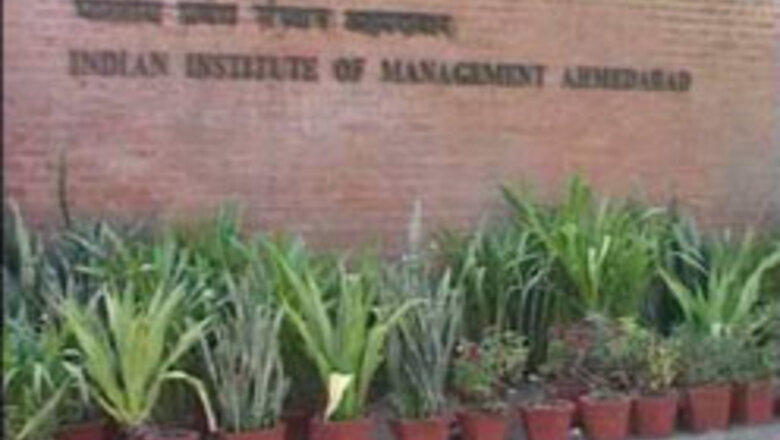
views
Ahmedabad: India can save billions of rupees by replacing hefty subsidies on kerosene through differential pricing with a direct cash subsidy to beneficiaries, says a study by the Indian Institute of Management, Ahmedabad (IIM-A).
"A direct subsidy will abolish corruption that exists through adulteration and misuse of fuel meant for the poor," said Sebastian Morris, a co-author of the study.
Other co-authors of the working paper, "A scheme for efficient subsidisation of kerosene in India", are Ajay Pandey and Samir K Barua.
"The direct subsidy scheme will be based on the free market pricing system. Removing the current method of low pricing for poor is the answer for achieving effectiveness of subsidisation," Morris added.
How? He explains that the government annually offers a subsidy of Rs 100 billion on kerosene. However, it has to spend Rs 240.40 billion in order to deliver that subsidy to beneficiaries.
Yet, the Rs 100 billion subsidy does not reach its intended beneficiaries as "about 40 percent of the kerosene stock targeted for domestic use (for those living below the poverty line - BPL) gets diverted for commercial purposes. Adulteration is altogether a different problem," Morris argued.
According to Morris, the "stupidity" of maintaining a separate distribution channel for the poor results in this "social waste".
"Planning Commission data testify that the government spends Rs.6.22 in order to provide a subsidy of Re 1 to the poor. This waste is the result of maintaining this unnecessary parallel distribution system called Public Distribution System (PDS)," he said.
The economist reasoned that the PDS and 'fair price shops' had a role to play when the country was facing a shortage of food and some essential commodities. "But now we are producing surplus. What is the need for retaining a system that consumes so much?"
The most important gain if the subsidy amount is distributed in cash, according to Morris, is that the beneficiaries would be in a position to "fully utilise their entitlements and spend the same on products and services of their choice, significantly enhancing the utility of their consumption".
To implement that proposal, the paper suggests that 'smart cards' could be issued to the beneficiaries.
Taking kerosene out of the PDS and removing the duel pricing will also help curb adulteration in the fuel besides making diversion of subsidised kerosene to open market pointless.
"Equal taxation on fuels (patrol, diesel and kerosene) will stop adulteration and will also not affect the revenue. The biggest benefit will be the elimination of corruption in the oil sector, and the poor will get their share," Morris said.
The proposed scenario targets the inefficiencies in subsidy and not its beneficiary. In fact, Morris suggested that a portion of the public money saved in the new model could be ploughed back to increase the subsidy.
The academician said the Indian government would soon have to adopt the direct subsidy system - not only for kerosene but for other essential commodities too.
"We have come a long way from the licence and quota system. This (direct subsidy system) is just a matter of advancing a few steps," he said.




















Comments
0 comment